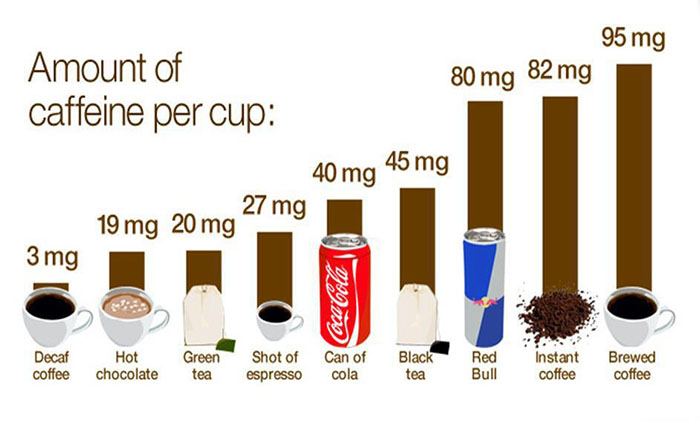Caffeine has become a part of everyday life. It’s there from the moment we wake up to our first cup of coffee, to the late nights of intensive studying. It is the most commonly consumed psychoactive drug worldwide, but does your everyday consumer really know how they’re being affected by the substance?

First, let’s look at the action mechanism of caffeine in the body. Caffeine is a central nervous system stimulant and acts on adenosine receptors in neurons and other areas throughout the body. The adenosine receptor is activated by a breakdown product of ATP, known as adenosine, and slows down neural activity to increase relaxation and fatigue. Caffeine binds to and inhibits adenosine receptors, leaving fewer receptors available to bind with adenosine, therefore decreasing its sleep-inducing activity.
The majority of people consuming caffeine are aware of its stimulating and energizing effects, however, many are not familiar with other benefits or risks associated with caffeine. Since 80 percent of caffeine consumed is primarily as coffee, fewer studies have been carried out on the effects of caffeine alone, as opposed to coffee as a caffeine source. In a recent article, it states that consuming coffee, amounting to around 200mg of caffeine, has been found to increase brain health and enhance short-term and possibly long-term memory. It has also been found to decrease the risk of death caused by heart disease and stroke as well. Those who were associated with drinking coffee daily were at a lower risk of developing cancer, liver disease, and type 2 diabetes. Also, it is possible that coffee or caffeine may delay dementia for those who have mild cognitive impairment. On the other hand, studies have correlated coffee/caffeine consumption with increased blood pressure, tachycardia, and sometimes arrhythmia. It can also result in migraines, sleep deprivation, nervousness, and irritability.

Caffeine consumption has some appealing benefits as well as some deterring negative effects. Although studies show there to be reduced risk percentages for certain chronic diseases, many of these studies are observational and look for parallels between coffee drinking and diseases, rather than prove a cause and effect. With that being said, it is difficult to conclude whether or not the health benefits outweigh the risks, and to be honest, it probably doesn’t matter all that much. Those who are regular coffee consumers will continue to be, and those who have never tried it before are never going to. However, it is still sensible to be familiar with how a substance may affect you, before it is consumed.
David Infanti
